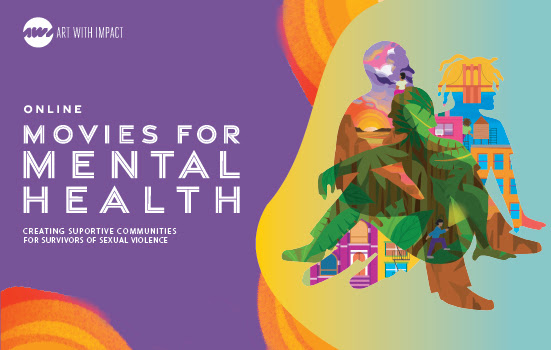Conducted by the Art With Impact, the Movies for Mental Health workshop engaged in two hours of film-based discussion that would focus on the stigma surrounding sexual violence and mental health in an online session on Jan. 19.
Art With Impact is a nonprofit organization that seeks to cultivate mental wellness by encouraging young people to learn more about self-care through art and media.
Campus Victim’s Advocate Angel Gray said, “I think everyone is inspired in different ways and for many varying reasons. Some individuals may connect with the topics on a personal level based on experience and feel like they want to pay it forward…
The most important thing is that individuals are connecting to the stories and being inspired to take action in some form whether that is through advocacy, awareness, education, donations to nonprofits, or volunteer work.”
Gray was the person who organized for AWI to have a presentation for Cerritos students.
It was overseen by Lead Educator Beth Killian from AWI, and the session was officially initiated by a brief explanation of relevant terms like mental wellness and stigma for the 18 participants to better understand the session’s context.
Another important definition referring to the qualities that determined if someone was a sexual violence survivor—from having trauma after non-consensual sexual acts to set boundaries being crossed by violators.
“If we have a strict, limited, or unclear idea of what these terms mean, it’s harder for us to have open and vulnerable conversations about the mental health impacts of sexual violence,” said Killian.
If I Told You by Dominique Nieves was the first film shown, which illustrated the often indifferent and cruel aftermath of sexual assault as not only law enforcement, but also friends were doubtful of what occurred.
The second film on the list was Touch Me Don’t Touch Me by Lucie Rochel, where the uncertainties involved with being a victim finding a love interest – beautifully visualized by eerie, almost sensual dancing.
As lamented by attendants in the chatbox, it is unfortunate that there are few individuals who are unlikely to believe the stories of these victims as shown so far.
Then Kim Huynh’s Sal Tran was the third—and final—film shown and while it was also saddening, it was more hopeful tone as it emphasized the significance of speaking with other sexual assault victims from similar backgrounds.
Student Ambassador Christina Montoya of Little Black Dress, as she shared during the session, also emphasized the import of seeking out comfort from the appropriate personalities—having survived sexual assault in the past as both a child and adult.
Montoya said, “If we are able to stop or able to put a pause to it then a bunch of students and people in society will be able to be more willing to speak up and give [survivors] the help that they need.”
To further support AWI’s mission, interested students can register in AWI Continued Connections and maybe add to the list of films in AWI’s OLIVE Film Collection.
















